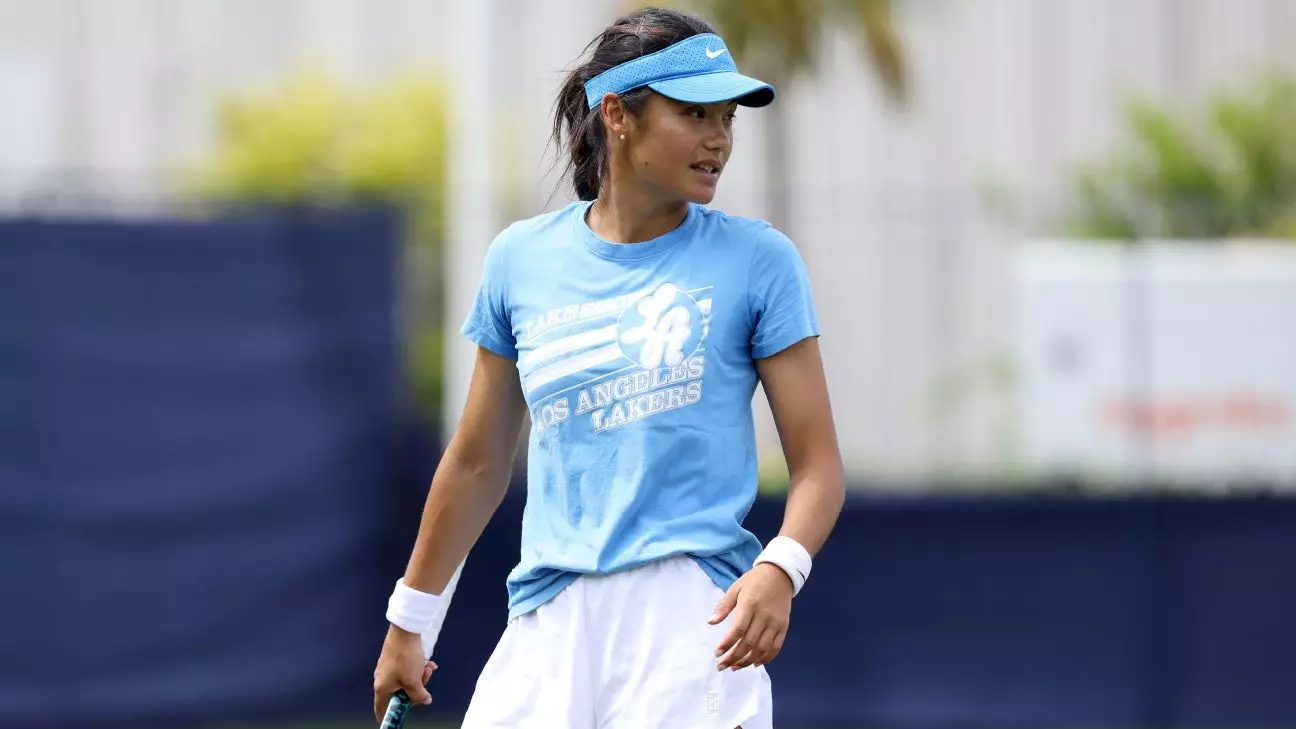Emma Raducanu’s ascent to tennis stardom following her stunning US Open victory in 2021 has not only showcased her athletic prowess but also cast a spotlight on the darker realities many female athletes face. Recently, Raducanu navigated a deeply distressing situation involving a stalker, reminding us of the significant and often-overlooked personal challenges female athletes encounter. While she achieved remarkable success on the court, the burdens off it can weigh heavily.
Confronting the Shadows of Fame
Raducanu’s ordeal began as a series of unsettling experiences involving an individual who persistently followed her across various WTA events, leaving her feeling vulnerable during moments when she should have been solely focused on competing. The stalking escalated to a point where Raducanu broke down in tears upon spotting him in the audience during her match at the Dubai Championships. Such a breach of privacy can shatter an athlete’s mental composure, turning the spotlight of public adulation into a source of anxiety and fear.
Wimbledon, operated by the All England Club, stepped in decisively to block this man’s attendance, reflecting not only a commitment to player safety but also an understanding of the heavier emotional baggage that comes with public life. Raducanu expressed her gratitude, stating, “Wimbledon and everyone did an amazing job,” underscoring how institutional support plays a crucial role in the well-being of athletes.
The Broader Impact on Female Athletes
What Raducanu’s experience highlights extends beyond her personal tribulations—it underscores a systemic issue within sports where female athletes are disproportionately targeted. It’s disheartening yet imperative to recognize that this isn’t an isolated incident. Many female athletes, past and present, have faced similar situations, turning sporting arenas into places of peril instead of pure competition. Raducanu’s bravery in acknowledging her struggles is a step towards amplifying voices affected by harassment, which often get drowned out in the male-dominated arenas of sports.
Moreover, Raducanu’s remarks about feeling safer with increased security measures at events echo a vital need for stronger protective measures for all female athletes. The psychological impact of such vigilance extends beyond immediate safety; it fosters an atmosphere of empowerment, allowing athletes to concentrate on performing without the weight of fear hanging over them.
Unity in the Face of Adversity
The solidarity exhibited by fellow athletes like Katie Boulter, who openly discussed her own experiences with online abuse, fortifies the message: no athlete should feel alone in their struggles. The arena of sports can often feel like a lonely battlefield, but with shared experiences and collective voices, the fight against harassment can gain momentum. Raducanu’s story stands as a powerful reminder that while victory on the court is celebrated, the mental, emotional, and physical safety of athletes must also be championed off the court.
In this era of heightened awareness and advocacy, Raducanu’s story serves as both a potent call to action and a beacon of hope—not just for female athletes, but for all individuals grappling with issues of safety and harassment. Empowerment arises when voices unite, and through such unity, change is not just possible; it becomes inevitable.

